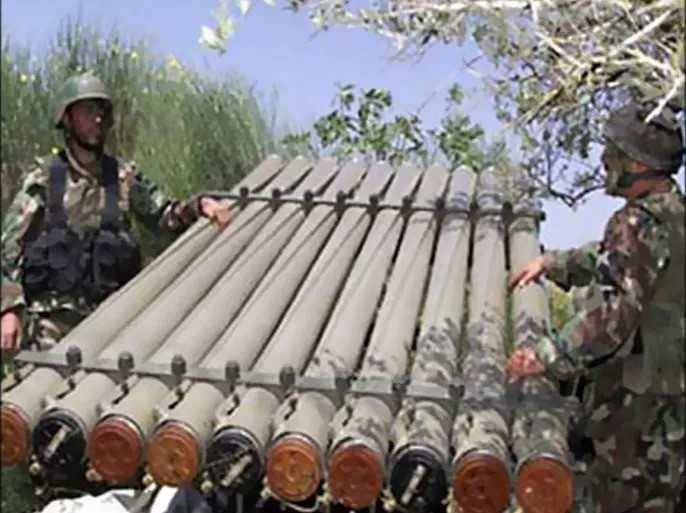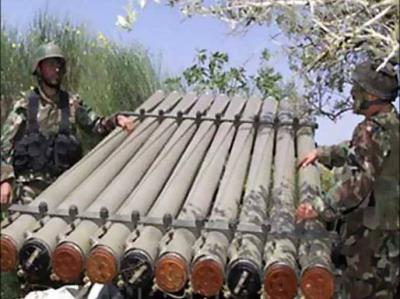Lebanese political forces, regardless of their affiliations and backgrounds, are closely monitoring the Arab and international reactions to Israel's incursion at the Rafah crossing. They are assessing whether this action is part of the pressures being exerted on Hamas to compel it to accept terms for a ceasefire in Gaza, or if it signals Israel's intention to control the city of Rafah, bringing significant consequences that could lead to an expanded conflict including southern Lebanon. This region is currently witnessing an escalation of military confrontations between Israel and Hezbollah, which has begun employing unconventional weapons that reach deeper into Israel in response to Israel's violations of engagement rules, particularly by transforming the region south of the Litani River, which it demands the withdrawal of the Radwan forces from, into a scorched territory, devoid of its population and increasingly difficult to inhabit, as reported by "Asharq Al-Awsat."
Sources within the Shiite duo (Hezbollah and the Amal Movement) claim that Hezbollah has declared a state of mobilization to prepare for Israel's next steps after its incursion at Rafah, should it decide to expand the war to include southern Lebanon. These sources confirm to "Asharq Al-Awsat" that international parties have not ruled out Israel's widening of the conflict as a preemptive step to prevent Hezbollah from repeating Hamas's incursion into Israeli settlements along the Gaza perimeter.
These sources also note that the observations made by the Shiite duo on the second version of the French paper aimed at calming the situation in the south reflect their desire to engage in a dispute process with Paris, awaiting the outcome of mediations pressured by the United States to achieve a ceasefire on the Gaza front and its extension to southern Lebanon. They assert that Hezbollah has started to use advanced weaponry to counter Israel's breaches of engagement rules, hoping to impose a new equation in support of Hamas, governed by a balance of terror, to urge Israel to reconsider its calculations regarding the expansion of the war.
The Shiite duo acknowledges that its engagement with the French paper remains within the limits of buying time to fill the void, but through negotiations, until political circumstances allow for the U.S. mediator Amos Hochstein to resume his efforts between Beirut and Tel Aviv to implement UN Resolution 1701, particularly as he is still in the exploratory phase to assess their willingness to adhere to it.
The same sources confirm that the U.S. mediator, in his communication with Speaker of Parliament Nabih Berri, did not present a comprehensive paper for implementing Resolution 1701, but rather offered a set of ideas articulated in an unofficial document that was circulated with Hezbollah, which has been tasked with negotiating the implementation of Resolution 1701, due to the party's severed ties with Washington since it was placed on the terrorist list.
Additionally, the U.S. mediator had reached out to caretaker Prime Minister Najib Mikati, who preferred to limit negotiations to the Speaker of Parliament, based on the fact that Hezbollah confides solely in him regarding its desires and how it will respond to U.S. ideas for implementing Resolution 1701, without implying that it has left the field clear for him not to intervene, especially since they coordinate on every detail.
In this context, political sources assert that Paris did not propose its plan to calm the situation in southern Lebanon behind Washington's back, but initiated coordination with it as it is in contact with Hezbollah's leadership and Iran. It might leverage this relationship to address objections to implementing Resolution 1701, should there be political feasibility on Israel's part for its implementation, even though communications between Washington and Tehran have not ceased. This was evident from Tehran's response to Israel by targeting its consulate in Damascus while keeping the situation limited and under control, clearly indicating that it does not intend to expand the war.
Thus, achieving a ceasefire in Gaza and its extension to Lebanon under European and American pressure could lead to a fundamental change in Lebanon's current agenda, prioritizing the attainment of a ceasefire along the front between Lebanon and Israel, paving the way for the presidential file to be revived and moving the presidential election out of the deadlock as a condition for launching negotiations to implement Resolution 1701.
The sources further state that the return of the French presidential envoy Jean-Yves Le Drian to Lebanon, as stated by President Emmanuel Macron, is linked to the presidential election issue, in agreement with the five-nation committee comprising the United States, France, Saudi Arabia, Egypt, and Qatar. Its role is limited to providing support and facilitation for the election, currently waiting for the decisions of foreign ministers to break the deadlock surrounding the election, as they may outline the key points for a roadmap to stop delaying the election.
Close associates of the Shiite duo and others affiliated with Mikati have indicated that the Maronite-Maronite conflict is delaying the presidential election, thus it is inappropriate to overlook it in a manner that leads to sectarianizing the presidential file. However, the campaign targeting Mikati should motivate the end of the caretaker government's services through the election of a president, especially since Mikati addressed the MPs in the last parliamentary session saying: "Elect the president, and relieve us."
Accordingly, the U.S. mediator will focus on preparing conditions for implementing Resolution 1701, without implying that Washington will withdraw from the political scene regarding the presidential election, as it holds political influence both domestically and with the regional and international powers concerned with the election, according to "Asharq Al-Awsat."




